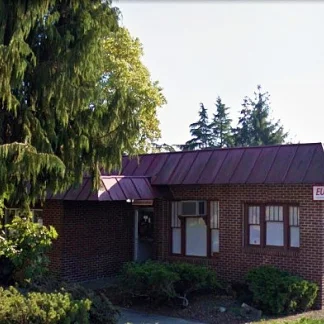Eugenia Center - Adult Social Support Center
Eugenia Center – Adult Social Support Center is a non-profit rehab located in Ch...
Eugenia Center – Mental Health Services is a non-profit rehab located in Chehalis, Washington. Eugenia Center – Mental Health Services specializes in the treatment of dual diagnosis, mental health, and substance abuse.
Contact us for more information: (360) 948-0203

Connect with Eugenia Center - Mental Health Services by calling their admissions team directly.
(360) 948-0203 Website Get DirectionsResearch clearly demonstrates that recovery is far more successful and sustainable when loved ones like family members participate in rehab and substance abuse treatment. Genetic factors may be at play when it comes to drug and alcohol addiction, as well as mental health issues. Family dynamics often play a critical role in addiction triggers, and if properly educated, family members can be a strong source of support when it comes to rehabilitation.
Group therapy is any therapeutic work that happens in a group (not one-on-one). There are a number of different group therapy modalities, including support groups, experiential therapy, psycho-education, and more. Group therapy involves treatment as well as processing interaction between group members.
In individual therapy, a patient meets one-on-one with a trained psychologist or counselor. Therapy is a pivotal part of effective substance abuse treatment, as it often covers root causes of addiction, including challenges faced by the patient in their social, family, and work/school life.
Group therapy is any therapeutic work that happens in a group (not one-on-one). There are a number of different group therapy modalities, including support groups, experiential therapy, psycho-education, and more. Group therapy involves treatment as well as processing interaction between group members.
In individual therapy, a patient meets one-on-one with a trained psychologist or counselor. Therapy is a pivotal part of effective substance abuse treatment, as it often covers root causes of addiction, including challenges faced by the patient in their social, family, and work/school life.
In individual therapy, a patient meets one-on-one with a trained psychologist or counselor. Therapy is a pivotal part of effective substance abuse treatment, as it often covers root causes of addiction, including challenges faced by the patient in their social, family, and work/school life.
Eugenia Center – Adult Social Support Center is a non-profit rehab located in Ch...
Located in Centralia, Washington, American Behavioral Health Systems – ABHS is a...
AA – Alcoholics Anonymous is a non-profit rehab located in Chehalis, Washington....
New Directions Counseling is a private rehab located in Chehalis, Washington. Ne...